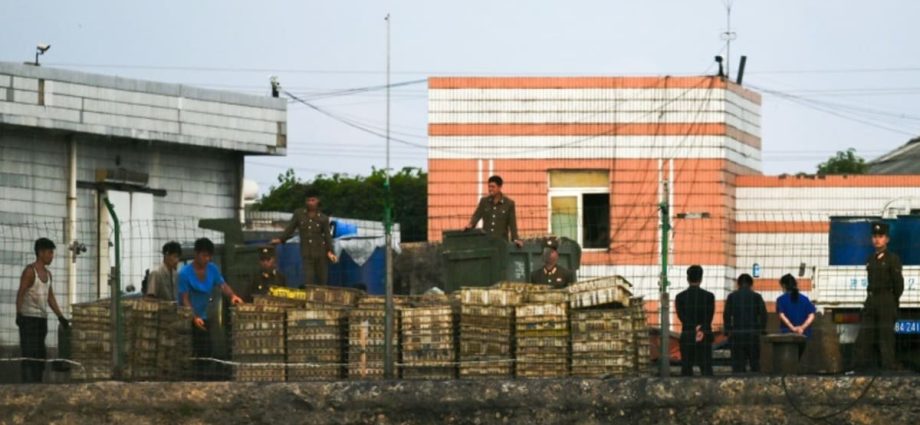
His income had fallen by around half compared to before the pandemic.
Traders declined to be identified in order to freely discuss the politically sensitive topic of dealing with North Korea.
Dandong’s customs authority declined to comment on the current state of trade.
WIGS, SEAFOOD AND GINSENG
Doing business with North Korea is fraught, with Pyongyang’s trade in everything from coal and oil to seafood and sporting equipment restricted.
Traders told AFP it had still been possible to conduct limited commerce from China to North Korea in some medical equipment and certain types of clothing.
But the sweeping nature of the sanctions has pushed some into unorthodox ventures.
One merchant advertising wigs and fake eyelashes said he sent raw materials for processing in North Korea before reimporting finished hairpieces for sale.
Human rights groups and defectors say the hair market employs prisoners from the country’s detention centres.
Other traders hinted that certain types of under-the-table commerce were also possible.
One at a Dandong night market touted North Korean seafood, saying Chinese fishermen often raided their waters for “fresher, higher-quality” produce.
Another shopkeeper said he had “channels” for importing the ginseng lining his shelves, “but what those channels are, I won’t say”.
A brighter spot appears to be tourism – restricted to the Chinese side for now.
Several Chinese travel agents in Dandong said domestic tourists were finally rebounding after years of virus curbs crippled internal travel.
Two tour operators geared towards Western visitors said they had not received an official notice but were quietly confident about a reopening next year.
“There are positive signs,” said Simon Cockerell from travel firm Koryo Tours, stipulating that he didn’t see a reason to “get over-excited just yet”.
Before the pandemic, North Korea welcomed thousands of tourists every year.
On a boat along Dandong’s river, around 30 people gazed at Sinuiju’s rusty docks, smokestacks and near-empty roads.
A guide declared that North Korean authorities had not allowed most of the city’s residents to work near the water since the pandemic for fear of contagion.
“It’s just like China in the 1970s or 80s,” she told the crowd.
“Very backward.”

